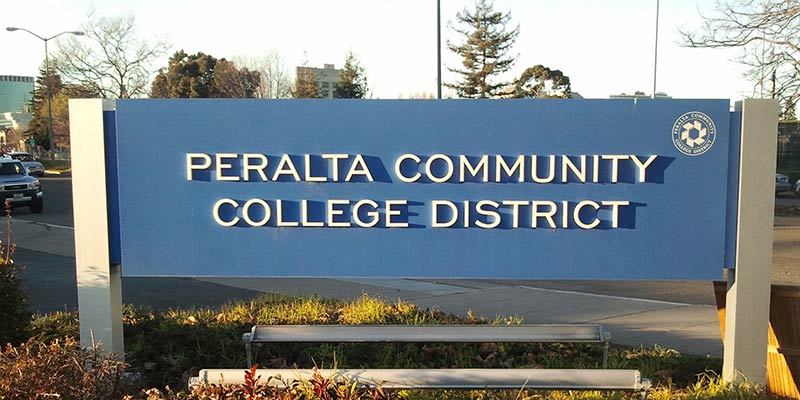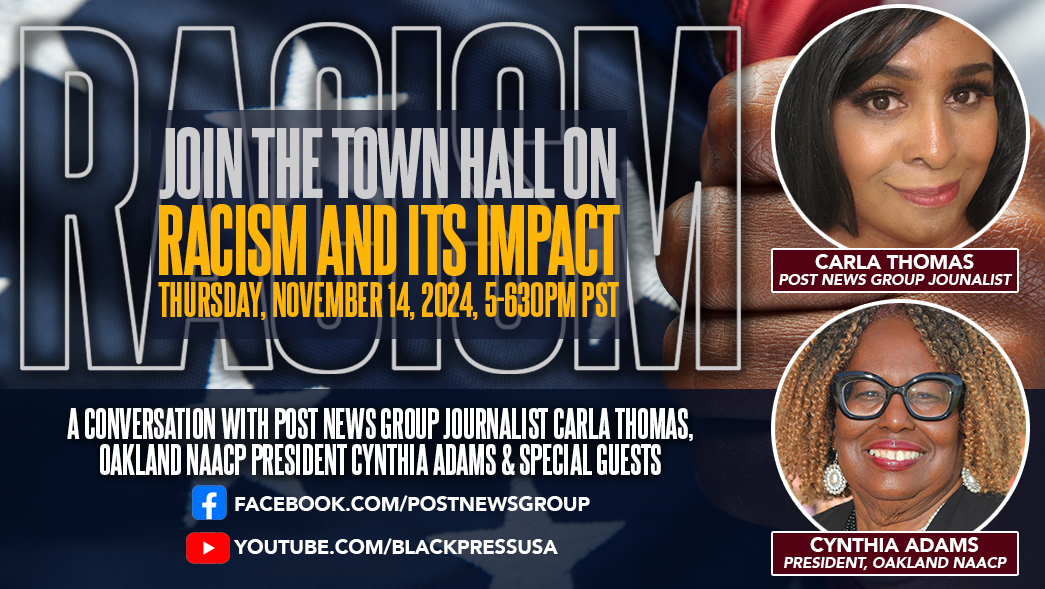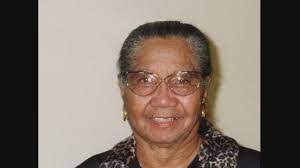Education
Peralta Colleges Reaffirms Committment to DACA Students

By Chancellor Jowel Laguerre, Peralta College Presidents, and Board Chair Julina Bonilla
After the election of President Donald Trump, the District Board of Trustees took a very active stance supporting our Undocumented Students and all students who had reasons to be concerned about any potential unjust actions of the Trump administration. We are saddened that the administration has taken the position to end,within six months, the protection provided by DACA.
Deferred Action for Childhood Arrivals (DACA) is a program that represents the decency of America. DACA protects children who were brought to this country and who have grown up as Americans in all the sense of the word. Often called “dreamers,” these children have been integrated into the culture of our schools and have embraced our values: America is their country. DACA students have demonstrated their commitment to be productive citizens and to keep our country strong and great. Some have served in our military, some have earned degrees, and many have filled jobs that in our country that have strengthened our economy. We recognize the many accomplishments of DACA students and acknowledge their role in our democracy and their contributions to our society: they are lawyers, physicians, teachers—they are productive members of our communities.
At Peralta, we have hundreds of students who fit the DACA category, and they are among the best citizens we have. The Trump administration’s abrupt decision to end DACA is unwise and appeals to a political base that has proven out of step with the majority of America. For this reason, we need to do everything we can to provide the immediate support needed for our students. In fact, community colleges throughout the State of California are stepping up to be supportive of all DACA students.
The Peralta Community College District is committed to supporting DACA students in the best way we can and are committed to the following actions:
- We will schedule legal workshops at the Colleges as soon as possible so that DACA students can learn about their rights and seek legal protection.
- We will advocate through Congress and the White House to develop a permanent, fair, humane, and smart solution to making every “dreamer” a documented and respected citizen of the United States.
- We will encourage our local legislators and community leaders to join us in lending their public support to this effort.
- We will assure that all PCCD students– and especially the DACA students– know they are not alone in these troubling times.
Most importantly, our students need to know that their Faculty, the Staff, the Board of Trustees, the Chancellor and the College Presidents are watching out for them and that everyone in the United States is protected by the U.S. Constitution. The rights of DACA students are not exceptions to these protections.
As part of our commitment, we want all to know that the District:
- Will not allow federal immigration officials on campus absent legal authority;
- Will not act on behalf of federal agencies to enforce immigration laws or aid in deportation;
- Will not share student records containing confidential information without written consent, a court order or other legal mandate, and,
- Will not allow College police to participate in any voluntary program of immigration enforcement.
PCCD remains deeply committed to all of our students and will do everything we can to ensure their success and safety. Currently, we are witnessing a troubling period in our history and we will do everything in our power to win back the values and ideals that make our country the beacon of hope and opportunity for the entire world.
Finally, we aim to beat the deadline to end DACA that has been thrust upon us. There are presently two bills before Congress (one of which is bi-partisan), which would preserve DACA; therefore, Congress is not starting from scratch and hope is not lost: 1.) the Bridge Act was introduced by Republican Senator Lindsey Graham on December 9, 2016 and co-sponsored by Senators Feinstein, Durbin, Murkowski, Flake and Schumer. 2.) The American Hope Act was introduced by Representative Gutierrez on July 28, 2017 and has 116 Democratic co-sponsors. The legislative process could result in a successful bi-partisan effort supporting the Bridge Act, which is currently before the Judiciary Committee, or the American Hope Act. We are not giving up hope to continue to support DACA.
Activism
LIVE! — TOWN HALL ON RACISM AND ITS IMPACT — THURS. 11.14.24 5PM PST
Join us for a LIVE Virtual Town Hall on the Impact of Racism hosted by Post News Group Journalist Carla Thomas and featuring Oakland, CA NAACP President Cynthia Adams & other Special Guests.
Thursday, November 14, 2024, 5 p.m. – 6:30 p.m. PST


Join us for a LIVE Virtual Town Hall on the Impact of Racism hosted by Post News Group Journalist Carla Thomas and featuring Oakland, CA NAACP President Cynthia Adams & other Special Guests.
Thursday, November 14, 2024
5 p.m. – 6:30 p.m. PST
Discussion Topics:
• Since the pandemic, what battles have the NAACP fought nationally, and how have they impacted us locally?
• What trends are you seeing concerning Racism? Is it more covert or overt?
• What are the top 5 issues resulting from racism in our communities?
• How do racial and other types of discrimination impact local communities?
• What are the most effective ways our community can combat racism and hate?
Your questions and comments will be shared LIVE with the moderators and viewers during the broadcast.
STREAMED LIVE!
FACEBOOK: facebook.com/PostNewsGroup
YOUTUBE: youtube.com/blackpressusatv
X: twitter.com/blackpressusa
Bay Area
Election Day Across the Bay: “Oh, Thank God, It’s Over!”, Anxious and Hopeful Voters Share Their Thoughts
Millions of people across the country stood in long lines and sat around their TVs waiting to see what the fate of the next four years would look like. In the Bay Area, college students, residents young and old, and hopeful voters shared feelings of excitement, but also a sense of dread.

By Magaly Muñoz
Millions of people across the country stood in long lines and sat around their TVs waiting to see what the fate of the next four years would look like.
In the Bay Area, college students, residents young and old, and hopeful voters shared feelings of excitement, but also a sense of dread.
The Post visited polling sites and election night parties to talk to voters about how they felt after a whirlwind election cycle.
These reactions were taken before the presidential race was called and Donald Trump was declared president-elect.
First Time Voters
At UC Berkeley, students piled into a cramped building, Eshleman Hall, to cast their votes in between classes.
Outside of the hall, the Associated Students of the University of California (ASUC) were handing out free pizza and “Go Bears. Go Vote” stickers to students who proved they submitted their ballot.
“We want to make sure that there are reduced barriers to entry for people who may be voting for the first time or challenge themselves to get to the polls. We want to make sure that people are rewarded for being civically engaged,” Carmen Berry, ASUC student, said.
Berry, who voted for Vice President Kamala Harris, said this was her first experience voting in a presidential election and she’s kept in mind all there is to lose, such as reproductive rights, should Donald Trump win.
“We need to vote for ourselves, and we need to vote for the America that we want to become,” Berry said.
Katie, a Business and Cognitive Science major, told the Post that being from California, a traditionally Democrat state, makes her feel like her vote doesn’t actually matter because she knows the results will sway Harris’ way regardless.
She’s also worried about reproductive rights, and the future of the Department of Education, a department Trump has vowed to end when in office.
“My brother is special needs. He’s on IEP and without the Department of Education, he would not have been able to graduate high school. So, for me, it’s definitely personal,” Katie said.
Long Lines at Oakland Public Library
At 6 p.m. on election night, the Oakland Public Library on 14th Street had a line of voters wrapped around half the building. People toward the front of the building said they had been waiting for nearly an hour to get inside and cast their votes.
Nakia White, an Oakland resident, said she voted against the recalls for Mayor Sheng Thao and Alameda District Attorney Pamela Price. She thinks the entire recall process has been a waste of time and money, though she acknowledges the recalls will likely succeed because of the big pockets backing them.
“I feel like the people who are funding [the recalls] are doing this so they can get someone in who will let them buy up all the property and raise property values, which means local residents will not be able to afford to live here, as we already can’t,” White said.
Mark A, a recent Oakland resident, said he voted for Harris because she fits more into the mold of the progressive policies he supports. Being Latino, he said that Trump’s negative rhetoric turned him off as a voter.
Mark said that if he had to choose one word to describe the current election cycle, it would be “chaotic”.
Election Parties Start to Show Loss of Hope
Fluid510, a bar lounge across the street from Oakland City Hall, started seeing trickles of voters in the early evening as they kicked off their election party.
The location was adorned with “Bay Area for Harris/Walz” signs and red, white, and blue decor. Patrons were giddy with excitement until voting results started piling in on the big screen around 7 p.m.
ReAnn Scott, a Berkeley resident, told the Post that watching the NBC coverage was starting to scare her. There was too much red, signifying the states where Trump was winning, on the screen.
But she’s enthusiastically said she’s glad the election cycle has ended. She’s tired of all the political messaging that’s been forced on people for months now.
“Oh, thank God, it’s over!” Scott said.
Over in San Francisco, Manny’s, a civic and political event space, hosted a block party with a huge screen outside on Valencia Street and a packed venue at their 16th Street location.
Speakers attempted to talk down the crowd as more votes started to skew toward a Trump win. Those in attendance had weary faces and conversations were starting to show doubt that Harris could pull through and win the presidential race.
“I’m just so pissed,” one patron said as the CNN electoral map filled with red state wins.
Art
Brown University Professor and Media Artist Tony Cokes Among MacArthur Awardees
When grants were announced earlier this month, it was noted that seven of the 22 fellows were African American. Among them are scholars, visual and media artists a poet/writer, historian, and dancer/choreographer who each receive $800,000 over a five-year period to spend as they see fit. Their names are Ruha Benjamin, Jericho Brown, Tony Cokes, Jennifer L. Morgan, Ebony G. Patterson, Shamel Pitts, Jason Reynolds, and Dorothy Roberts. This is the third in the series highlighting the Black awardees.

Special to The Post
When grants were announced earlier this month, it was noted that seven of the 22 fellows were African American. Among them are scholars, visual and media artists a poet/writer, historian, and dancer/choreographer who each receive $800,000 over a five-year period to spend as they see fit. Their names are Ruha Benjamin, Jericho Brown, Tony Cokes, Jennifer L. Morgan, Ebony G. Patterson, Shamel Pitts, Jason Reynolds, and Dorothy Roberts. This is the third in the series highlighting the Black awardees. The report below is excerpted from the MacArthur Fellows web site.
Tony Cokes
Tony Cokes, 68, is a media artist creating video works that recontextualize historical and cultural moments. Cokes’s signature style is deceptively simple: changing frames of text against backgrounds of solid bright colors or images, accompanied by musical soundtracks.
Cokes was born in Richmond, Va., and received a BA in creative writing and photography from Goddard College in 1979 and an MFA from Virginia Commonwealth University in 1985. He joined the faculty of Brown University in 1993 and is currently a professor in the Department of Modern Culture and Media.
According to Wikipedia, Cokes and Renee Cox, and Fo Wilson, created the Negro Art Collective (NAC) in 1995 to fight cultural misrepresentations about Black Americans.[5]
His work has been exhibited at national and international venues, including Haus Der Kunst and Kunstverein (Munich); Dia Bridgehampton (New York); Memorial Art Gallery University of Rochester; MACRO Contemporary Art Museum (Rome); and the Carpenter Center for the Visual Arts (Harvard University), among others.
Like a DJ, he samples and recombines textual, musical, and visual fragments. His source materials include found film footage, pop music, journalism, philosophy texts, and social media. The unexpected juxtapositions in his works highlight the ways in which dominant narratives emerging from our oversaturated media environments reinforce existing power structures.
In his early video piece Black Celebration (A Rebellion Against the Commodity) (1988), Cokes reconsiders the uprisings that took place in Black neighborhoods in Los Angeles, Detroit, Newark, and Boston in the 1960s.
He combines documentary footage of the upheavals with samples of texts by the cultural theorist Guy Debord, the artist Barbara Kruger, and the musicians Morrisey and Martin Gore (of Depeche Mode).
Music from industrial rock band Skinny Puppy accompanies the imagery. In this new context, the scenes of unrest take on new possibilities of meaning: the so-called race riots are recast as the frustrated responses of communities that endure poverty perpetuated by structural racism. In his later and ongoing “Evil” series, Cokes responds to the rhetoric of the Bush administration’s “War on Terror.”
Evil.16 (Torture.Musik) (2009–11) features snippets of text from a 2005 article on advanced torture techniques. The text flashes on screens to the rhythm of songs that were used by U.S. troops as a form of torture.
The soundtrack includes Metallica’s “Enter Sandman” and Britney Spears’s “… Baby One More Time,” songs known to have been played to detainees at deafening decibel levels and on repeated loops. The dissonance between the instantly recognizable, frivolous music and horrifying accounts of torture underscores the ideological tensions within contemporary pop culture.
More recently, in a 2020 work entitled HS LST WRDS, Cokes uses his pared-down aesthetic to examine the current discourse on police violence against Black and Brown individuals. The piece is constructed around the final words of Elijah McClain, who was killed in the custody of Colorado police. Cokes transcribes McClain’s last utterances without vowels and sets them against a monochromatic ground. As in many of Cokes’s works, the text is more than language conveying information and becomes a visualization of terrifying breathlessness. Through his unique melding of artistic practice and media analysis, Cokes shows the discordant ways media color our understanding and demonstrates the artist’s power to bring clarity and nuance to how we see events, people, and histories.
-

 Alameda County4 weeks ago
Alameda County4 weeks agoAlameda County District Attorney Pamela Price Announces $7.5 Million Settlement Agreement with Walmart
-

 Activism4 weeks ago
Activism4 weeks ago‘Jim Crow Was and Remains Real in Alameda County (and) It Is What We Are Challenging and Trying to Fix Every Day,’ Says D.A. Pamela Price
-

 Bay Area4 weeks ago
Bay Area4 weeks agoIn the City Attorney Race, Ryan Richardson Is Better for Oakland
-

 Activism4 weeks ago
Activism4 weeks agoOakland Post: Week of October 30 – November 5, 2024
-

 Alameda County3 weeks ago
Alameda County3 weeks agoD.A. Price Charges Coliseum Flea Market Vendors in Organized Retail Theft Case
-

 Activism4 weeks ago
Activism4 weeks ago‘Criminal Justice Reform Is the Signature Civil Rights Issue of Our Time,’ says D.A. Pamela Price
-

 Activism2 weeks ago
Activism2 weeks agoLIVE! — TOWN HALL ON RACISM AND ITS IMPACT — THURS. 11.14.24 5PM PST
-

 Bay Area3 weeks ago
Bay Area3 weeks agoOakland Mayor Sheng Thao’s Open Letter to Philip Dreyfuss, Recall Election’s Primary Funder
























































